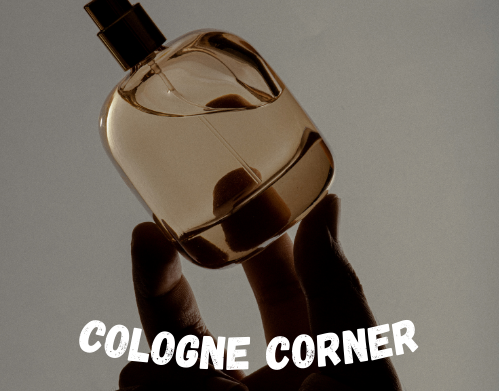This post may have affiliate links, meaning we earn a small commission on purchases through the links (at no extra cost to you). This does not change our opinion but does help support the site. Thank you!
Are you tired of the morning dilemma: to wear cologne or not to wear cologne to school? The struggle is real!

We all want to make a positive impression, but finding the right balance can be tricky. Fear not, because we’ve got you covered. In this article, we’ll delve into the question, “Should I Wear Cologne to School?”
We’ll explore the benefits and potential drawbacks, helping you navigate this fragrant conundrum with ease.
From selecting the perfect scent to considering the sensitivities of others, we’ll provide you with practical tips and insights to make an informed decision.
Should I Wear Cologne to School?
Yes. You can wear cologne to school; however, make sure it’s not strong enough to affect people lose to you.
Etiquette 101 says that wearing a strong cologne in a closed space can be irritating due to the lack of continuous air flow. Since a classroom is a closed space, you may want to consider how strong your cologne is before wearing it to school.
Also, you may want to check with your school’s policy regarding the use of colognes. If no school policy addresses such, be decent enough to consider wearing a less concentrated cologne when heading to school.
Classmates or teachers could be sensitive to the smell and this could work against you since colognes and perfumes can trigger allergies.
This will lead to sniffing, headaches, migraine, and dizziness among those with sensitive respiratory systems.
With that said, below re some factors to consider before spritzing that bottle as you head to school;
Factors To Consider When Wearing a Cologne to School.
- Understand Your School’s Policy
- Hygiene Factor
- How Much Is Too Much
- Your Learning Setting Whether Closed or Open
- Activities That You’ll Be Engaging In
What’s more;
1. Understand Your School’s Policy
It is essential to be aware of your school’s policies regarding fragrance usage. Some schools may have a ban on perfumes due to sensitivities and allergies.
Also read; Can You Bring Perfume On A Plane?
Check the school rules, which can often be found on the school’s website. If wearing perfume is permitted, ensure that it is used sparingly, so the scent is not overpowering and does not disrupt others.
2. Prioritize Hygiene:
Perfume should not be used as a cover-up for body odor resulting from sweating. Maintaining good personal hygiene is crucial. Take regular showers or baths using warm water and mild soap to eliminate bacteria and body oils.
Wear clean clothes, preferably made of cotton, and use a reliable deodorant after bathing. It is important to note that deodorant serves a different purpose than perfume.
Avoid mixing the two and opt for water-based deodorants instead of alcohol-based ones. Additionally, keeping non-fragrant wet wipes handy can help freshen up during the day.
3. Moderation is Key:
When applying perfume, remember that less is more. Avoid drenching yourself in fragrance and instead opt for a subtle application.
Focus on the pulse points, such as wrists and behind the ears, as these areas enhance the scent without overwhelming others. Never apply perfume directly onto your clothes.
Look for a fragrance that strikes a balance between being mild and long-lasting. Boys may prefer to avoid overly floral scents, while girls may want to steer clear of woody notes when selecting a perfume.
4. Your Learning Setting Whether Closed or Open
The learning environment at your school plays a significant role in determining whether wearing cologne is appropriate. Consider whether your school has closed or open spaces.
In closed settings, such as classrooms or lecture halls with limited ventilation, strong fragrances can linger and become overwhelming for both you and your classmates.
In such cases, it is advisable to opt for lighter scents or refrain from wearing cologne altogether to maintain a comfortable atmosphere conducive to learning.
On the other hand, in open settings, such as outdoor areas or spacious common areas, fragrances tend to disperse more easily. However, it is still essential to be mindful of the intensity of the perfume you choose, as a heavy application can still affect those around you.
5. Activities That You’ll Be Engaging In
Consider the activities you’ll be participating in throughout the school day. Certain activities may require physical exertion, such as sports, dance classes, or theater rehearsals.
During these active pursuits, you may naturally perspire more, which can intensify the scent of your cologne.
In such cases, it is generally recommended to avoid wearing strong fragrances, as they can mix with sweat and create an unpleasant odor.
If you still prefer to wear cologne, opt for lighter, fresher scents that are less likely to clash with perspiration.
Frequently Asked Questions
How Much Cologne Should I Use for School?
To ensure a pleasant fragrance without overpowering others at school, apply one spray of cologne on the back of your neck, one spray on each wrist, and one spray on either side of your chest.
This balanced application will provide a subtle scent that is appropriate for the school environment.
What Percentage of High Schoolers Wear Cologne?
According to this study, 68% highschoolers between 16 and 17 years wear cologne which is a drop from 80% in 2005.
Schools have continually introduced policies regulating the use of colognes thus the decline in high-schoolers wearing cologne.
The Wrap-Up
In conclusion, the decision of whether to wear cologne to school ultimately rests on personal preference and consideration for others.
While it can be enjoyable to wear a pleasant fragrance, it is crucial to exercise restraint and choose a subtle scent.
Being mindful of school policies, practicing good hygiene, and considering the learning environment and activities can help determine if wearing cologne is appropriate.
Remember, a light application of cologne on pulse points can provide a pleasant aroma without overwhelming classmates or disrupting the educational setting.
